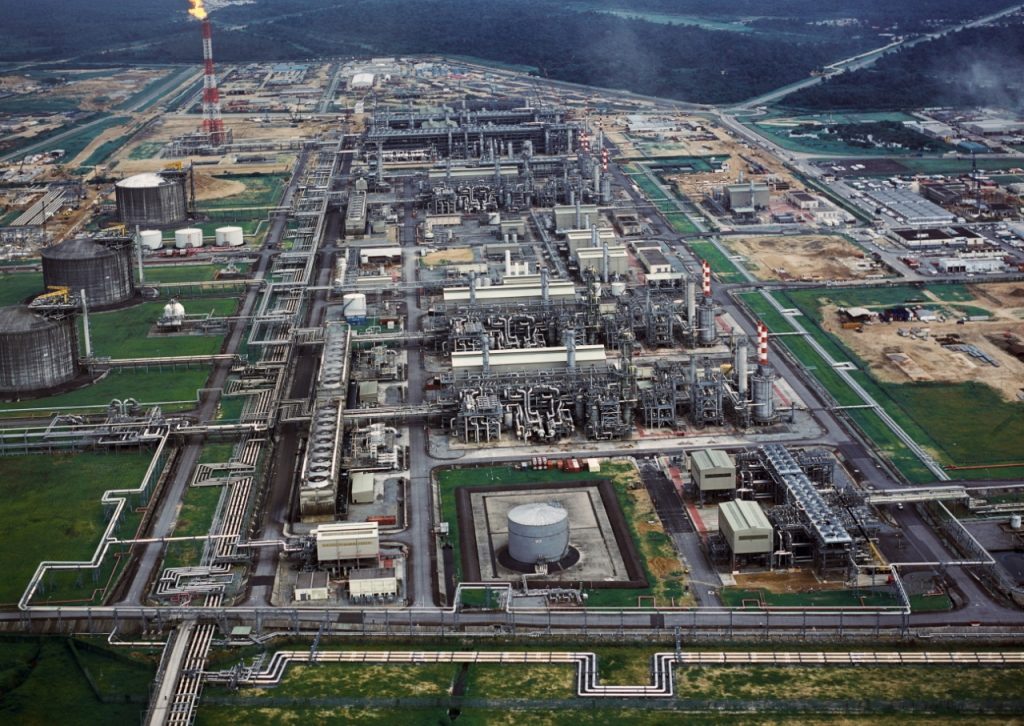
Train-7 probe: How NASS can align with Nigeria’s LNG dreams
Sopuruchi Onwuka
The ongoing probe into contract negotiations relating to the seventh processing train of the Nigerian Liquefied Natural Gas (NLNG) Limited points to clear misalignment with the country’s urgent need to ramp up its liquefaction capacity and grab more space in the global gas supply market.

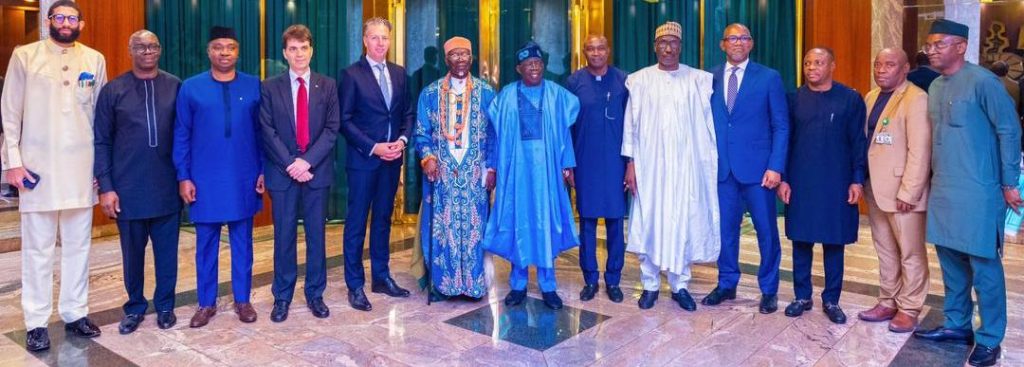
The disturbing controversy evidently slows down the nation’s renewed race to catch up with her peers in the LNG business comes after policy shifts in the local gas subsector stalled new investments in the local LNG business for over 20 years. And the belated resumption of capacity growth is coming at a time of intense scramble among gas suppliers for limited market share as the world diversifies energy mix to cut fossil fuel emissions.
Thus, as the joint committee of the National Assembly resumes its sittings in the month of July to continue prying into the cost variations in the ongoing Train-7 project, many analysts continue to wonder what values the Senate and House of Representatives want to add to the project. Many others worry about the quality of outcomes that the inquiry would eventually produce. The overall concern is the misalignment of the inquiry with national priority to fast track the project.
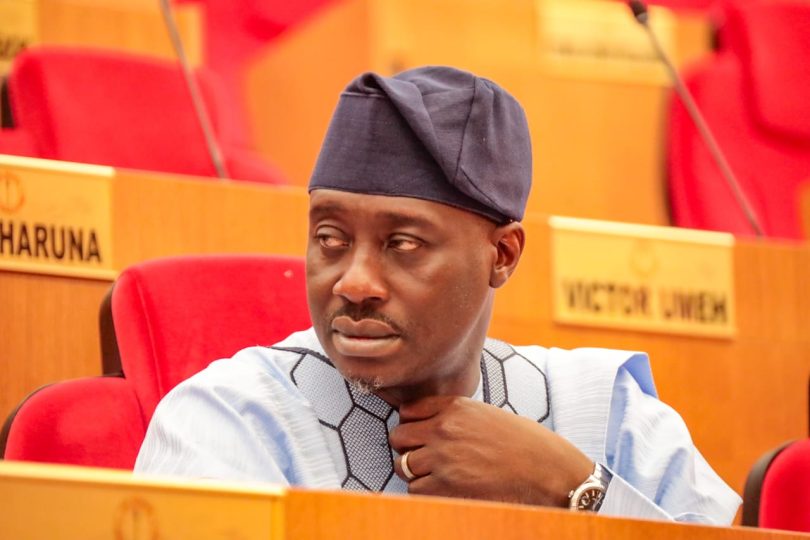
At the heart of the current legislative probe is the germaneness of cost variation in the technology and services contracts awarded the consortium of foreign services providers. Also at dispute are the separate and conflicting financial figures held up by the legislators and the managers of the project respectively. Whereas the legislators point at cost variation requests totaling $81 million, the managers of the Train-7 project explain that fluctuations in the local foreign exchange rate have necessitated consideration of only $7 million in cost variation for the contractors.
It is not certain that any cost variation poses a threat to smooth progress of the Train-7 project. It is almost certain that all stakeholders in the NLNG Limited, including Shell, TotalEnergies, Eni and the Nigerian National Petroleum Company (NNPC) Limited are not in dispute over the systems and processes driving the project so far.
Most contentious, therefore, is the process through which the joint National Assembly committee landed itself the role of scrutinizing the cost negotiations on the ongoing project managed by some of the world’s best oil companies who have delivered similar projects elsewhere.
Besides the NNPC Limited which represents government’s interest in the NLNG, the ongoing probe appears to have brushed aside other government agencies that line up in the technical, commercial and economic regulations in the petroleum industry.
And of worrisome concern to other players in the industry is the insistence of the NASS committee to openly examine details of the contracts which carry confidentiality clauses. Whereas the NLNG Limited and its contractors currently struggle to protect the integrity of all aspects of the contracts governing delivery of the project, including the confidentiality on cost negotiations; the legislators strongly demand that the details of the contracts must be provided for open examination.
While the drama continues at the National Assembly, players in the Nigerian petroleum industry perceive the inquiry as a battle that obviously holds no value for the country, the industry and the Train-7 project.
No matter what and how, the legislative inquiry portends delay in the delivery of the project and associated set of prime economic aspirations propelling numerous gas policies and programmes with which the country aligns itself with the global transition of energy demand to cleaner combustible fuels. It sends ominous signals to other investors that hold intentions to participate in numerous other gas valorization and propagation programmes enunciated by the government.
What has played so far in the Train-7 probe evidently gaslights all participants in the project; and impugns the hard earned reputation of the gas processing and export company as the best managed enterprise in Africa. The ongoing inquiry pulls down the flag of Nigerian competence mounted by the NLNG in running a successful international business for nearly 25 years.
Again, the legislators’ inquest conjures the ghosts of Nigeria’s global notoriety for battling with oil services multinationals over financial benefits relating to contracts awarded in the operations of international oil companies operating in the country. Indeed, many foreign services contractors have either left Nigeria or declined calls for Nigerian services after suffering injurious controversies that impugned their reputation.
The JGC of Japan which built the Port Harcourt refinery, for instance, had vehemently declined to accept the contract for the rehabilitation and upgrade of the refinery plants; ceding the job to its Italian consultants, Tecnimont, which are now working with the Nigerian National Petroleum Company (NNPC) Limited in an endless project to revamp the complex. The JGC left the country after the TSKJ consortium suffered reputation injuries while working in Nigeria. The Japanese company was in the consortium with Technip, Eni’s Snamproggetti, and Halliburton’s KBR to initiate gas liquefaction projects in Nigeria.
Thus the anxious ripples that hit the public space from the ongoing Train-7 inquiry invoke the dreaded ghost of controversies that forced many major multinational services providers like Willbros, Panalpina and many others to opt out of the country. And parading new set of service providers in the same spotlight tends to portray the country as a pitfall for foreign players.
What has remained at the heart of the many industry players discussing the disturbing issue is the value the legislative inquest is designed to deliver on the project. They are alarmed that the discussions so far have disappointedly focused on trifling issues of cost scrutiny and not on the effective strategies to fast track the project or create a visible path for squaring up to raging global supply competition.
And whereas the NLNG estimates the overall progress of the project at 67% completion, with “engineering at 97.9%, procurement at 95.5% and construction at 52.5%;” the attention of the legislators is fixed on the financial components of the project.
At recent informal discussion on the ongoing Train-7 inquiry witnessed by our correspondent, eminent industry players and technocrats wondered what foreign field technical services providers would be telling the National Assembly when the country’s national oil company eminently represents state’s interest in the management of the project.
A senior official of one of the multinational oil companies with direct interest in the project narrated how internal policy shifts, local political power tussle and scramble for resource wealth have hindered Nigeria from pacing up to its peers in the race for global LNG capacity development. He pointed at Qatar, Australia, Canada and the United States as countries that have left Nigeria behind in the race to provide the world with cleaner burning fossil fuel.
This oil industry executive was actually pointing at the mishap of energy policy reversals in the country which compounded the country’s embarrassing tendency to gaslight foreign companies with unnecessary controversies that make global headlines.
The Oracle Today recalls that Nigeria attracted some of the best global investors into the local gas liquefaction industry following the initial commercial successes and subsequent capacity spring of the NLNG Limited. Chevron led a consortium of multinational companies into the Olokola LNG project: Eni pulled a new set of global oil majors into the Brass LNG: and the existing NLNG consolidated its lead with a growth map that holds an outlook for Train-12.
Regrettably, the country’s overall LNG growth agenda shattered in 2011 when the former Minister of Petroleum Resources, the late Dr Rilwanu Lukman; and the former Group Managing Director of the defunct Nigerian National Petroleum Corporation (NNPC), the late Dr Mohammed Barkindo; announced at the Gas Exporting Countries Forum (GECF) Summit in Doha, Qatar, that Nigeria was discontinuing with gas export projects.
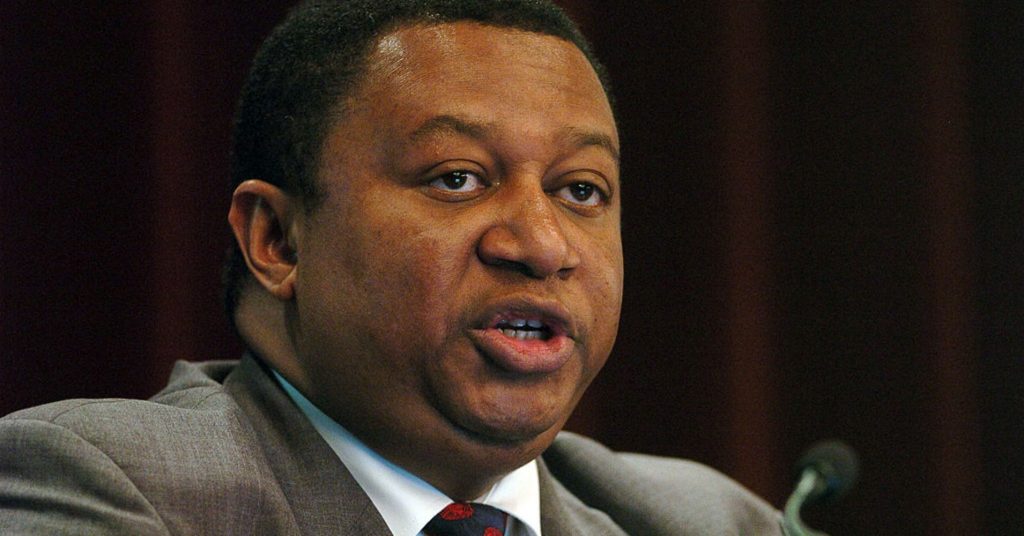
After all policy advocacies in favour of simultaneous domestic and export gas projects fell on deaf ears, the members of the several multinational consortia on Brass, Olokola and NLNG growth projects dispersed; leaving the Africa’s biggest gas processing company stagnated at its sixth train with estimated 10 percent of global gas supply.
While Nigeria sat idle and focused on available resource revenues; a number of global economic, political and conflict upheavals including the Russian invasion of Ukraine, post pandemic economic recovery and energy transition placed gas at the top of global fossil energy demand choice. This spurred demand jumps that activated significant new liquefaction projects across the globe. The subsequent competition to capture new market share saw Nigeria falling to global supply laggard with peer gas exporting nations boosting their plant capacity to the front row of global supply.
According to the Institute of Energy Economics and Financial Analysis (IEEFA), “global LNG supply capacity is set to rise to 666.5 MTPA by the end of 2028, which exceeds International Energy Agency (IEA) demand scenarios through 2050.”
The IEEFA declared in its latest report that delays and political risk continue to constrain growth of prospects in Nigeria and Algeria where supply has fallen on account of feedgas issues.
The IEEFA noted that whereas European oil and gas majors now target development of almost 14 MTPA of new African liquefaction capacity by 2028, pervasive project delays have heightened the financial risks of the projects.
Apart from the financial risks driving up the overall cost of gas liquefaction projects in Africa, the IEEFA stated in the report, Nigeria has lost the exclusive lead in new gas export investments following discovery of new petroleum provinces across the African continent and mass divestment of interests from Nigerian operations by oil multinational companies in the country.
The IEEFA counted the Tango Floating LNG facility; BP’s 2.5-MTPA Greater Tortue Ahmeyim floating liquefaction project off Mauritania; Senegal’s LNG project; Nigeria’s 7.8-MTPA Train 7 expansion project; Perenco’s FID for a 0.7-MTPA floating LNG plant in Gabon, and other proposed African LNG projects.
There is also the TotalEnergies $20 billion 13-MTPA Mozambique LNG project; ExxonMobil’s proposed 18-MTPA Rovuma project; and the $42 billion onshore LNG development in Tanzania by Shell and Equinor.
Beyond Nigeria and Africa, the International Gas Union (IGU) states in its latest report that global LNG capacity additions pushed global liquefaction capacity to 483.1 mtpa by the end of February, 2024.
“As of the end of February 2024, 1,046 MTPA of aspirational liquefaction capacity was in the pre-final investment decision (FID) stage. Most proposed capacity is in North America (643 MTPA), with 363.9 MTPA situated in the US; 230.3 MTPA in Canada, and 48.8 MTPA in Mexico. This is followed by Russia (157.4 MTPA), Africa (101.3 MTPA), Asia Pacific (66.5 MTPA) and the Middle East (71.5 MTPA).
“Global liquefaction capacity is likely to climb from 483 MTPA in 2023 to over 700 MTPA by 2030, driven by new FIDs and the start-up of projects currently under construction to support growing demand. Overall, the market upheaval caused by the Russia-Ukraine conflict is likely to stimulate investment in additional liquefaction facilities as governments put more emphasis on increasing energy security, while at the same time balancing decarbonization goals in this fast changing landscape,” the IGU declared in the report.
According to the IEEFA, “the global LNG market will witness an unprecedented wave of new liquefaction projects” in late 2024.
Counting only projects that are under construction or approved by financially capable backers, “IEEFA anticipates that global LNG production capacity will grow by roughly 193 MTPA from 2024 through 2028; rising from approximately 474 MTPA of nameplate capacity at the beginning of this year to 666.5 MTPA by the end of 2028.”
“By the end of 2024 or the beginning of 2025, a tidal wave of new LNG supply will start to take shape. IEEFA expects that roughly 37 MTPA of new LNG facilities will start operations in 2025, followed in 2026 with 57 MTPA of new capacity, the most ever built in a single year. IEEFA expects more LNG capacity additions of 44 MTPA in 2027 and 43 MTPA in 2028.”
Other new liquefaction capacity additions that have reached FID or construction stages in Africa include two floating LNG facilities off the coast of the Republic of Congo, a third floating facility off the coasts of Mauritania and Senegal, and a small project in Gabon. There are also additional LNG export facilities proposed for Mozambique.
The forecasts by IEEFA and IGU do not include any of the dozens of LNG projects around the world that have been proposed but have not yet received a final investment decision. They also do not count several projects that are moving forward but are not expected to be completed until 2029 or later.
The jump in new liquefaction capacity will be the fastest capacity growth in the global LNG industry’s brief history, representing a 40% increase in just five years. And the bulk of new LNG capacity to be completed by 2028 will be concentrated in the United States, Qatar and Australia- the three global heavyweights by capacity and market share.
It would be recalled that former President Muhammadu Buhari had upon a meeting with the board of the NLNG dismantled the domestic gas prioritization policy of the late Dr Lukman which had killed the OLokola LNG Brass, LNG projects and also stalled growth of the NLNG. This vacation of the Lukman policy cleared the path for the Train-7 project.

And Nigeria’s contribution to new global capacity in the period will be the 8.0 mtpa Train-7 project representing insignificant 4.15 percent of new global capacity addition and some 28 percent of Africa’s new capacity. By 2028, according to the data available at IEEFA and IGU, Nigeria’s total capacity of estimated 30 mtpa will represent mere 4.5 percent of the 666.5 mtpa total global capacity.
The country’s existing capacity of 22 mtpa represents 4.55 percent of the current global 483 mtpa. But this has translated to huge economic dividends for the nation of 200 million poor people that currently grapple with poor social and economic infrastructure, worsening insecurity, high unemployment rate, runaway inflation, frequent disease outbreaks and low life expectancy rate.
The situation would have been far worse without the positive social and financial contributions of the NLNG as the second biggest income earner and business enabler for the country. The company currently leads delivery of all the economic, environmental, commercial and social dividends of various government policies on gas valorization.
The gas processing and export company which twisted off the NNPC/Shell/Total/ Eni joint venture has continued to lay model for policy compliance, enterprise management efficiency, transparent financial operations, commercial viability and high returns on investment. This is in addition to moving the nation’s economy from being oil-based to becoming a global gas supply force.
In its first 20 years of operation, the NLNG reported over $100 billion in revenue. It declared payment of over $16 billion dividends to the federal government through NNPC. It patronized local gas producers with feedgas purchases worth $13 billion; and paid $6.5 billion in taxes.
The ongoing Train-7 project which promises to grow the company’s production capacity by 30 percent also holds immense potentials to further spur the nation’s domestic productivity through a dedicated local content quota already secured by the regulator in a binding Nigerian Content Plan.
The NNPC which holds the government’s 49 percent stake in NLNG has already declared that the Train-7 project would enhance the development of additional gas molecules and wheeling infrastructure in the country. The national oil company stated in Abuja that the expected gas gathering system would connect trunk lines from oil production sites to domestic market, opening up a flexible flow system that allows swinging of upstream gas to the direction of demand.
The NLNG also remains the first major petroleum company in the country to sign service level agreement with the NCDMB to shorten contracting cycle, cut cost of projects, and improve compliance with the Nigerian Content Act.
By the agreement and the signing of the Nigerian Content Plan for the Train-7 project, the NCDMB had laid an advance template for domiciliation of job in the areas of the project where capacity exists in-country.
The NLNG ranks first among all companies in the country on transparency of operations and industry best practices. It has the biggest annual budget for corporate social responsibility. And it has taken some of the biggest and audacious community development projects in the country.
The NLNG held the promise of being Africa’s largest and fastest expanding enterprise that flies Nigeria’s flag across international sea routes to connect the country’s natural gas resources from local oilfield flare booms through processing plants to farthest markets in the world. It also takes responsibility for displacing dirty fuels and associated health issues from Nigerian homes by supplying over 40 percent of total clean cooking fuel in the domestic market.
The company which is run entirely by Nigerian management team remains the symbol of national industry competency. And it stands tall with the reputation.
Managing Director and Chief Executive Officer of Nigeria LNG Limited (NLNG), Dr. Philip Mshelbila, told the Minister of State for Petroleum Resources (Gas), Rt. Hon. Ekperikpe Ekpo, that Nigeria would likely lose its position in international ranking of gas suppliers following fierce competition among producing countries for bigger market share.
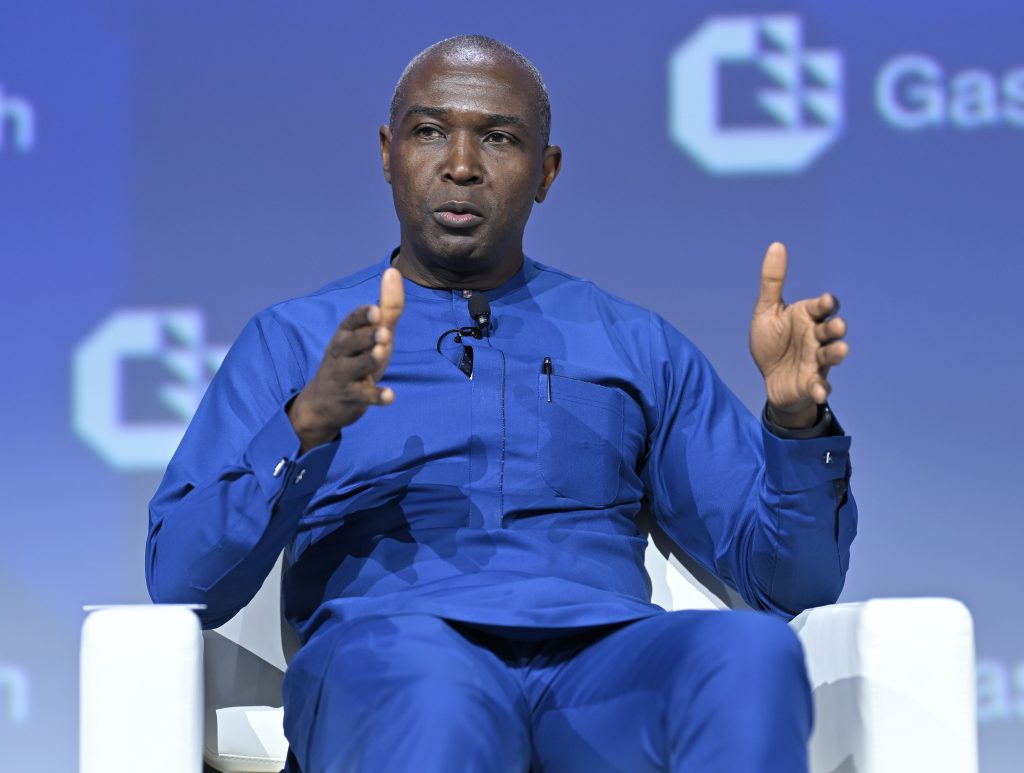
Countries like Qatar, Australia and the United State, Mshelbila told the minister, are currently shaking the tables in the global gas supply competition, with the American giant making the fastest and steepest leap in supply capacity.
He said Nigeria has remained the slowest capacity builder in the global LNG market as policy unpredictability, fiscal inconsistency, disrespect for contracts and local security volatility form part of the malaise in the local operating environment.
Mshelbila’s predecessor in office, Mr Tony Attah, had earlier declared that “Train 7 is no longer ambitious. What we should be doing to sound anything near ambitious is to start talking about Trains 8, 9 and 10.”
Mr Attah had emphasized that “sanctity of contracts is crucial.” And this is where the company appears to peg the prevailing altercation with the National Assembly committee over seeming invasion of contracts with its service providers.

Industry analysts watching the ongoing drama from varying prisms all appear to have failed to pin down any practical issue on ground the NASS probe is designed to solve. It also appears more difficult to find how the current investigation is designed to aid smooth and speedy realization of the project. What everyone sees in the ongoing probe appears to be a solid wedge in the path of progress.
The investigation visibly plugs into a traditional pattern of peddling political influence to create relevance. But such political stunts would correctly be interpreted as sheer interlope that drains precious energy at a time of rapid movement is required most.
Given what is at stake in the Train-7 project for the NLNG, its contractors, gas producers and product offtakers, traders and consumers across the world; the project stands as a symbol of new hope in the domestic economy after decades of lost opportunities. The Train-7 project is a product of policy correction with immense potential to unstuck the company from growth impasse, restore the country into the global movement for energy transition, and recover the nation’s space in the global gas market.
Therefore, the current National Assembly owes the nation the obligation to align its roles in the project with the existing government aspirations on the industry to expedite all growth opportunities that enable Nigeria recapture its position among its peers in the global marketplace. This could be done by assisting with laws that enhance the operating environment and investment climate for players in the industry.



